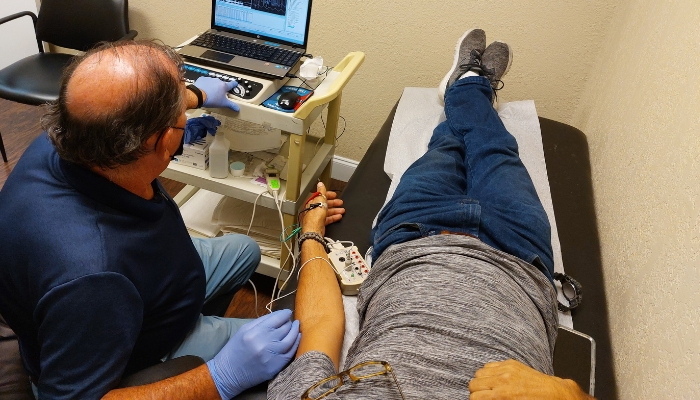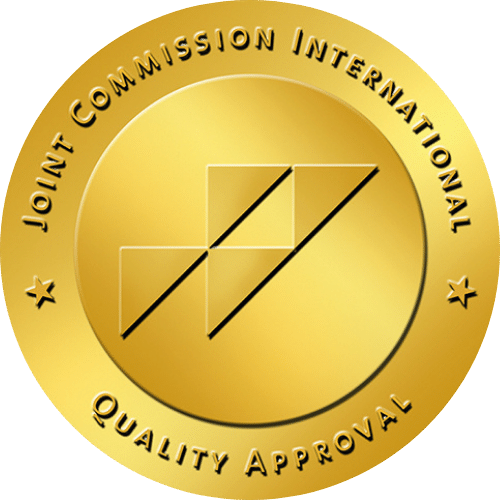EMG Test in Miami
What is an EMG test?
EMG test diagnoses diseases that damage muscle tissue, nerves or the points where nerve and muscle join. These disorders include a herniated disc , amyotrophic lateral sclerosis or myasthenia gravis..

Why You Might Need an EMG Nerve Test
Find out the cause of weakness, paralysis, involuntary muscle twitching or other symptoms.
Problems in a muscle, the nerves controlling a muscle, the spinal cord or the brain can all cause these kinds of symptoms.
How EMG Test Neurology Helps
Electromyograms are useful in determining whether there has been pressure on a nerve or nerve root degeneration. The test involves placing small needles into the muscles. You may have mild discomfort from this. There are no major risks associated with this test
Important Information Before Your EMG Test
Tell your doctor if you:
-
Are taking any drugs. Certain drugs that act on the nervous system (such as muscle relaxants and anticholinergics) can interfere with electromyography results. You may need to stop taking these pills three to six days before the test.
-
Have bleeding problems or are taking blood thinning drugs, such as warfarin or heparin
-
Have a pacemaker – please let the technician know before the test.
Preparation for the EMG Nerve Test
-
Do not smoke for at least three hours before the test.
-
Wear loose-fitting clothing that permits access to the muscles and nerves to be tested: short pants and short sleeves will suit very well.
-
You may be given a hospital gown to wear.
What to Expect During the EMG Test
You will be asked to lie or sit on a table so that the muscles being tested are relaxed and easy to reach.
The skin over the area being tested will be cleaned with an antiseptic.
An electrode that combines a reference point and a needle for recording is inserted into the muscle.
You will feel a brief, sharp pain when a needle electrode is inserted into the muscle. Some people find this a bit uncomfortable.
EMG Procedure Explained
The electrode is attached by wires to a recording machine.
Once the electrodes are in place, the electrical activity in that muscle is recorded while the muscle is at rest.
Then the technologist or doctor asks you to tense the muscle with gradually increasing force while the electrical activity in the muscle is recorded.
The needle may be moved several times to record the electrical activity in different areas of the muscle or in different muscles.
EMG Test Results
The electrical activity in the muscle shows as wavy and spiky lines on a special video monitor.
It may also be heard on a loudspeaker as machine gun-like popping sounds when you contract the muscle.
The recording should show no electrical activity when the muscle is at rest.
If the electromyogram shows electrical activity in a resting muscle, there may be a problem with the nerve supply to the muscle.
This kind of activity can also be caused by inflammation or disease in the muscle.
Abnormal levels and duration of electrical discharges when a muscle contracts also suggest the presence of a muscle or nerve disorder.
After the EMG Test
An electromyogram takes 20 to 40 minutes.
When the testing is done, the needle and skin electrodes are removed and the skin where the needle was is cleaned.
You may be given a pain reliever if you have any soreness.
Don’t wait to get answers. Schedule your EMG test neurology appointment in Miami now.
Our specialists are ready to help you diagnose and treat nerve and muscle conditions quickly and accurately.
